Having a designation on your land is a burden to farmers and such farmers should receive a payment for having it on their land, according to Mayo hill sheep and suckler farmer John Moran.
The Irish Farmers Journal sat down with John and two other farmers, Damien Conway and Frank McManamon, before the coronavirus restrictions came into effect to talk about designations.
All three farmers have designated land, either Special Area of Conservation (SAC), Special Protected Area (SPA), Natural Heritage Area (NHA), or a mixture of all three, on the Nephin Beg mountain range in Newport, Co Mayo.
The National Parks and Wildlife Service, under the remit of the Department of Culture, Heritage and Gaeltacht, designates land.
All three are sheep farmers and Moran also keeps sucklers.

Damien Conway.
Damien Conway says one of the biggest issues with a designation is that Basic Payment Scheme (BPS) rules from the Department of Agriculture insist that eligible land must be in a state suitable for grazing or cultivation, so land that contains any scrub must either have the scrub removed or that land is ineligible.
“If it’s designated, you cannot take it [scrub] out. What can you do? You’re damned if you do and you’re damned if you don’t. The different departments, the rules that they have to go by, it’s not their fault really, it’s what’s implemented, it doesn’t make a bit of sense,” he says.
For land which has been designated, there are 39 actions, called activities requiring consent (ARCs), which farmers need permission for before they can be carried out. These activities include fencing, drainage, topping land or clearing scrub.

John Moran Mayo INHFA. \ Michael McLaughlin
John Moran, who is also vice-president of the INHFA, says the first thing farmers have to do is get an impact study done on whatever action they want to carry out.
“You have to get somebody out to do it. Even if you go to the National Parks and Wildlife Service (NPWS), they’re not going to make a decision for you, they’re going straight to planning. I believe if the land is designated, the NPWS should say yes or no you can’t do that. If you cannot do it, the NPWS should take up that payment. They designated our land and they should be paying for the impact study and the planning permission.
“I was never told in writing from the Department of Agriculture, or wherever it comes from, what I can and cannot do. But now they send out these actions. If I’m lucky I might have only one or two of them but I can have anything up to 20 of them.”
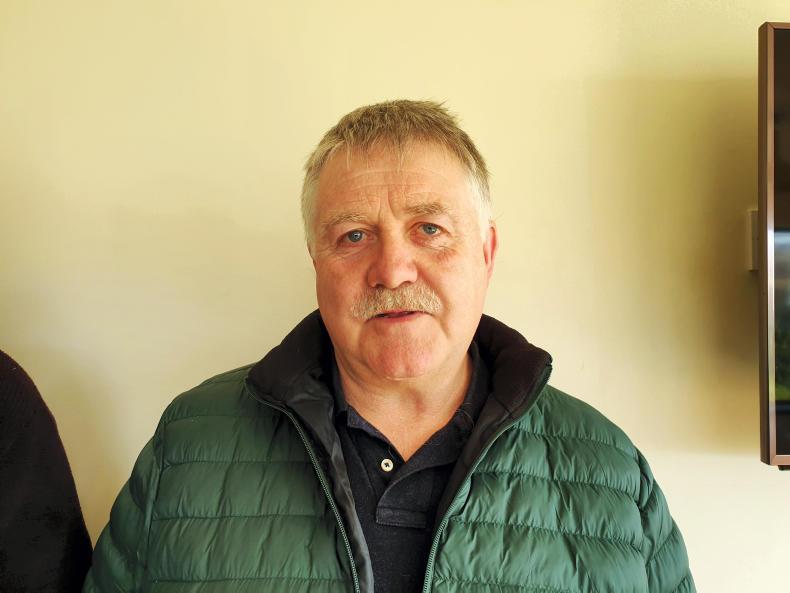
Frank McManamon.
Frank McManamon says that a couple of years ago he had serious flooding on his lands.
“There was probably half a mile of wire absolutely just washed away. In all fairness to the NPWS, there was nothing they could do. The guy that was doing it was on holidays, but we had to wait for two weeks before the man came to authorise us to put up the fence again,” he says.
Payment for designation
Farmers do not receive any extra payment for designated land, which Conway says is crazy.
“It should be a flat rate for designated land and that’s it. A lot of land is designated and a lot of farmers don’t know why it’s designated. There’s no communication whatsoever.”
Frank McManamon says that there was, in the old REPS scheme “but that’s the only one. When REPS went, the little bit that was coming, that went.”
Land value
When asked by the Irish Farmers Journal what the biggest issue is for them as farmers in a designated area, Moran says it’s “not being fit to farm freely” and having your land devalued.
“If you wanted to raise money on that or somebody belonging to you wanted to raise money on that, it’s devalued.
“It’s plain and simple – if I had a non-designated field, I could put it on the open market for some fella growing trees who could give me an awful lot more money for it. Because it’s designated, today he’s not in that picture. He’s not round that bidding table. I’m restricted in the amount of people that will come to my auction the day I’m selling if it’s designated land.”
Conway says that when land is designated, it goes from the farmer owning it really to being Government-owned.
“That’s the long and short of it. You can’t farm it the way you want to, you farm it the way they want. Your name might be on the deed and that’s it.
“I think it’s a shame that – it’s just a pity that a designation is such a hindrance for farmers. It’s a pity that there wasn’t proper communication and a scheme for it, that it would be irrelevant if it was designated or not.”
Most important land in Europe
Conway adds that when the Nephin Beg mountain was originally taken over by the NPWS, “they said it was the most important piece of ground in Europe, not Ireland, Europe.
“Blanket bog or whatever. You’d imagine, if you had a share in the most important piece of bog in Europe you’d be a happy person, rather than it being a complete and utter hindrance to you.”
Carbon and the environment
Moran says that their land is designated now and it won’t be changed.
“The environment is very important. Our carbon sequestration is very important. Personally, I’d like to see that we be recognised for all this good we’re doing and for the value we have here. I’d like our land to be valued and our way of life to be valued for that.
“This thing saying that we’re non-productive farmers which is being said everywhere – ‘them bucks down in the west of Ireland are non-productive’ – we want to be productive but because we are designated and because we’re complying with all these rules and regulations, in the next round of CAP we want to be nearly ticking a box, because we’re doing it already.
“We should not have to be doing something over and above. Just because we’re doing it before, we should not have to do actions over and above to get the same payments.”
Last of the Mohicans
McManamon says the real problem will be in a couple of years, when there’s no one left to take on the hills.
“How can you go getting [young people] to get involved in this bullshit? That’s where the problem is going to be, in a couple of years’ time. Look it, we’re the last of them. What you’re looking at here, we’re the last of the Mohicans.
“There’s no incentive to put them up there.”
Convergence
All three farmers say they would gain from convergence in the next CAP.
“Convergence is key to us here,” Moran says, adding that farmers in Mayo would gain from it.
McManamon says it could be the answer to younger farmers getting interested, to solve the problem.
Moran says that farmers in designated lands want recognition that having a designation is a burden. “We want a payment to cover that burden.”
Having a designation on your land is a burden to farmers and such farmers should receive a payment for having it on their land, according to Mayo hill sheep and suckler farmer John Moran.
The Irish Farmers Journal sat down with John and two other farmers, Damien Conway and Frank McManamon, before the coronavirus restrictions came into effect to talk about designations.
All three farmers have designated land, either Special Area of Conservation (SAC), Special Protected Area (SPA), Natural Heritage Area (NHA), or a mixture of all three, on the Nephin Beg mountain range in Newport, Co Mayo.
The National Parks and Wildlife Service, under the remit of the Department of Culture, Heritage and Gaeltacht, designates land.
All three are sheep farmers and Moran also keeps sucklers.

Damien Conway.
Damien Conway says one of the biggest issues with a designation is that Basic Payment Scheme (BPS) rules from the Department of Agriculture insist that eligible land must be in a state suitable for grazing or cultivation, so land that contains any scrub must either have the scrub removed or that land is ineligible.
“If it’s designated, you cannot take it [scrub] out. What can you do? You’re damned if you do and you’re damned if you don’t. The different departments, the rules that they have to go by, it’s not their fault really, it’s what’s implemented, it doesn’t make a bit of sense,” he says.
For land which has been designated, there are 39 actions, called activities requiring consent (ARCs), which farmers need permission for before they can be carried out. These activities include fencing, drainage, topping land or clearing scrub.

John Moran Mayo INHFA. \ Michael McLaughlin
John Moran, who is also vice-president of the INHFA, says the first thing farmers have to do is get an impact study done on whatever action they want to carry out.
“You have to get somebody out to do it. Even if you go to the National Parks and Wildlife Service (NPWS), they’re not going to make a decision for you, they’re going straight to planning. I believe if the land is designated, the NPWS should say yes or no you can’t do that. If you cannot do it, the NPWS should take up that payment. They designated our land and they should be paying for the impact study and the planning permission.
“I was never told in writing from the Department of Agriculture, or wherever it comes from, what I can and cannot do. But now they send out these actions. If I’m lucky I might have only one or two of them but I can have anything up to 20 of them.”

Frank McManamon.
Frank McManamon says that a couple of years ago he had serious flooding on his lands.
“There was probably half a mile of wire absolutely just washed away. In all fairness to the NPWS, there was nothing they could do. The guy that was doing it was on holidays, but we had to wait for two weeks before the man came to authorise us to put up the fence again,” he says.
Payment for designation
Farmers do not receive any extra payment for designated land, which Conway says is crazy.
“It should be a flat rate for designated land and that’s it. A lot of land is designated and a lot of farmers don’t know why it’s designated. There’s no communication whatsoever.”
Frank McManamon says that there was, in the old REPS scheme “but that’s the only one. When REPS went, the little bit that was coming, that went.”
Land value
When asked by the Irish Farmers Journal what the biggest issue is for them as farmers in a designated area, Moran says it’s “not being fit to farm freely” and having your land devalued.
“If you wanted to raise money on that or somebody belonging to you wanted to raise money on that, it’s devalued.
“It’s plain and simple – if I had a non-designated field, I could put it on the open market for some fella growing trees who could give me an awful lot more money for it. Because it’s designated, today he’s not in that picture. He’s not round that bidding table. I’m restricted in the amount of people that will come to my auction the day I’m selling if it’s designated land.”
Conway says that when land is designated, it goes from the farmer owning it really to being Government-owned.
“That’s the long and short of it. You can’t farm it the way you want to, you farm it the way they want. Your name might be on the deed and that’s it.
“I think it’s a shame that – it’s just a pity that a designation is such a hindrance for farmers. It’s a pity that there wasn’t proper communication and a scheme for it, that it would be irrelevant if it was designated or not.”
Most important land in Europe
Conway adds that when the Nephin Beg mountain was originally taken over by the NPWS, “they said it was the most important piece of ground in Europe, not Ireland, Europe.
“Blanket bog or whatever. You’d imagine, if you had a share in the most important piece of bog in Europe you’d be a happy person, rather than it being a complete and utter hindrance to you.”
Carbon and the environment
Moran says that their land is designated now and it won’t be changed.
“The environment is very important. Our carbon sequestration is very important. Personally, I’d like to see that we be recognised for all this good we’re doing and for the value we have here. I’d like our land to be valued and our way of life to be valued for that.
“This thing saying that we’re non-productive farmers which is being said everywhere – ‘them bucks down in the west of Ireland are non-productive’ – we want to be productive but because we are designated and because we’re complying with all these rules and regulations, in the next round of CAP we want to be nearly ticking a box, because we’re doing it already.
“We should not have to be doing something over and above. Just because we’re doing it before, we should not have to do actions over and above to get the same payments.”
Last of the Mohicans
McManamon says the real problem will be in a couple of years, when there’s no one left to take on the hills.
“How can you go getting [young people] to get involved in this bullshit? That’s where the problem is going to be, in a couple of years’ time. Look it, we’re the last of them. What you’re looking at here, we’re the last of the Mohicans.
“There’s no incentive to put them up there.”
Convergence
All three farmers say they would gain from convergence in the next CAP.
“Convergence is key to us here,” Moran says, adding that farmers in Mayo would gain from it.
McManamon says it could be the answer to younger farmers getting interested, to solve the problem.
Moran says that farmers in designated lands want recognition that having a designation is a burden. “We want a payment to cover that burden.”







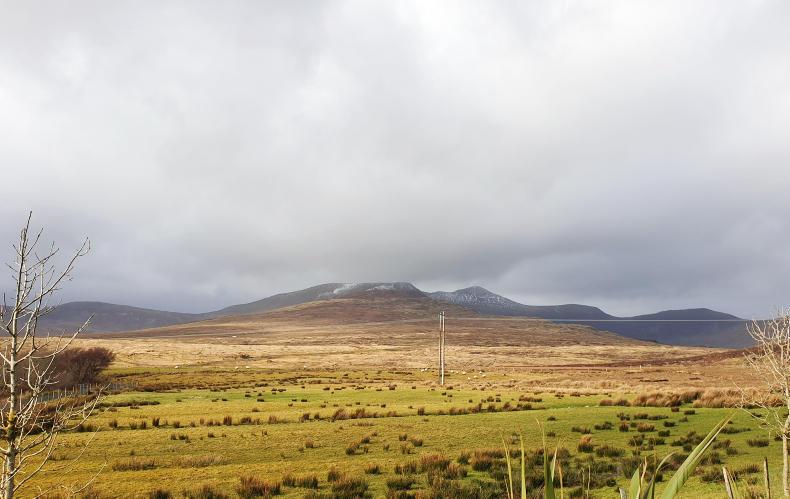
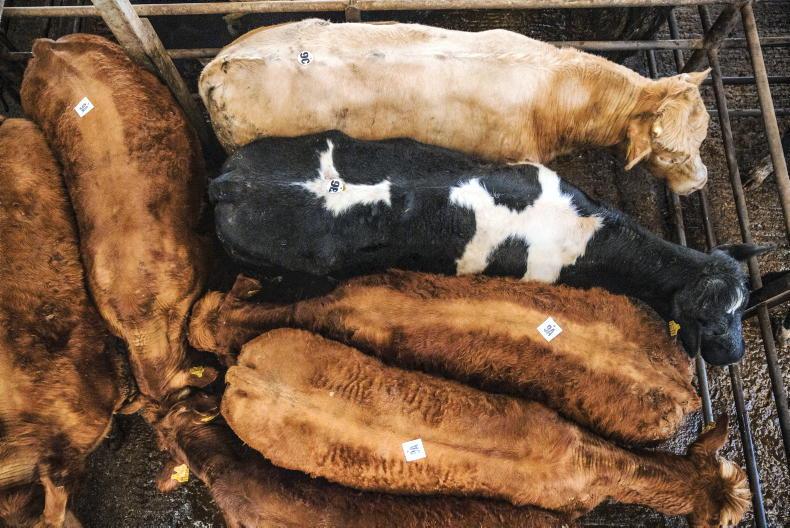

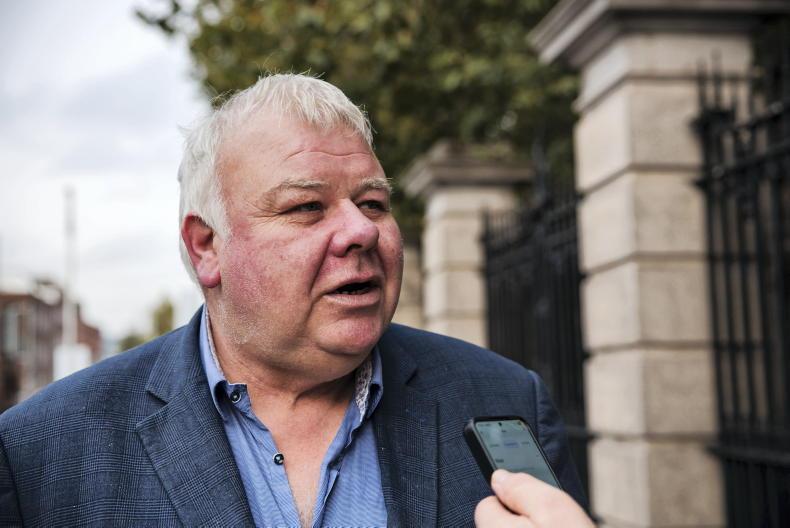
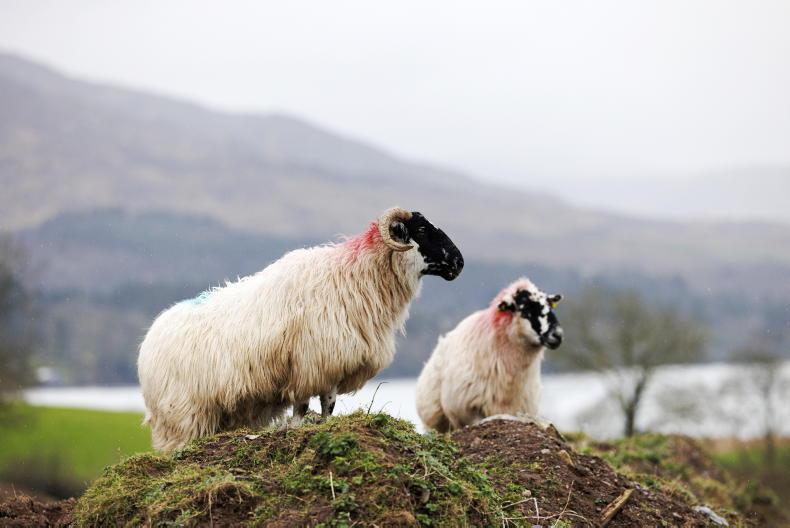
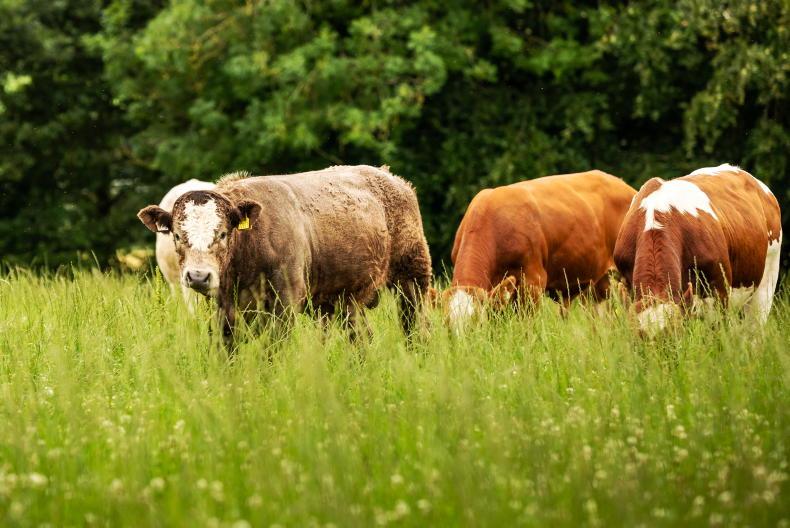
SHARING OPTIONS